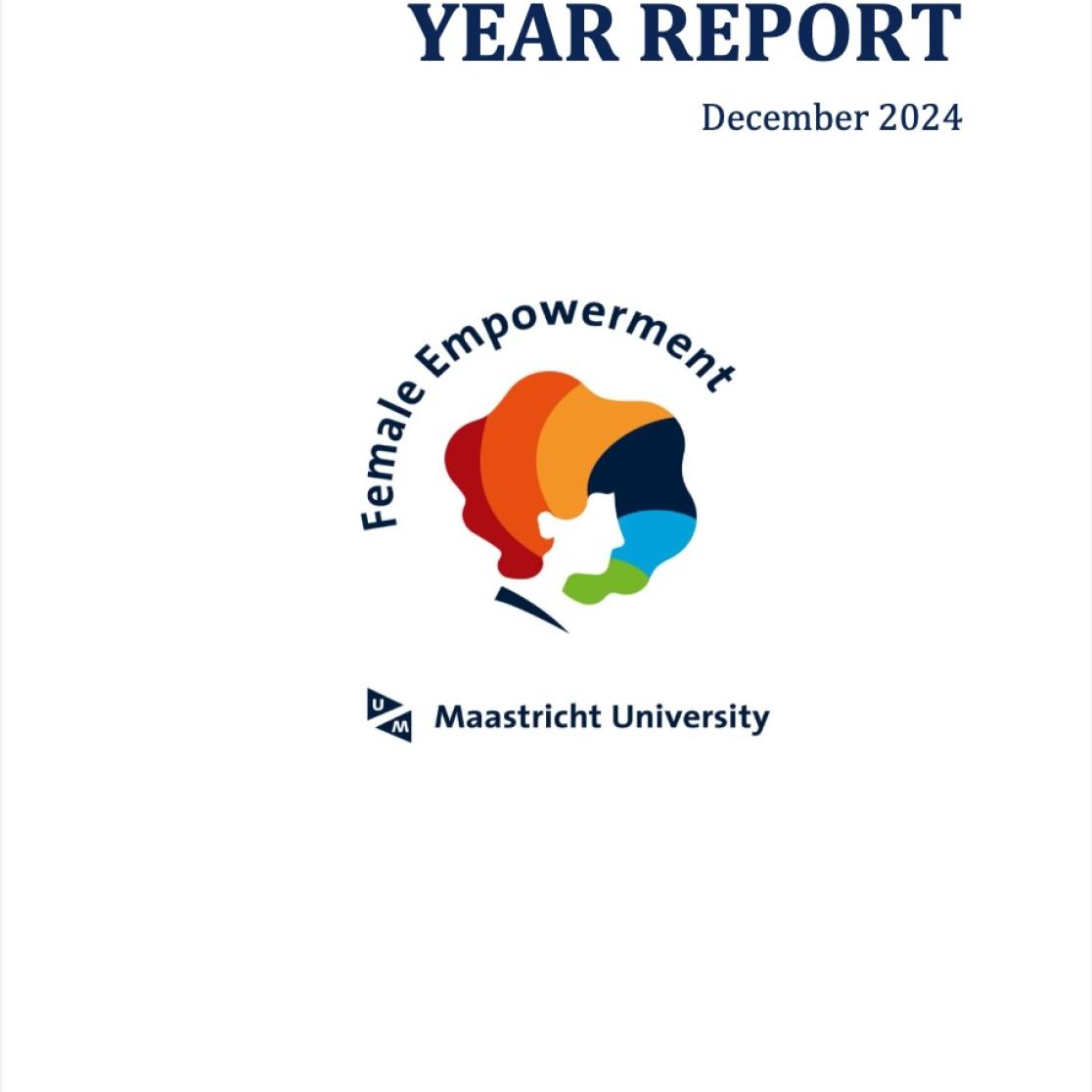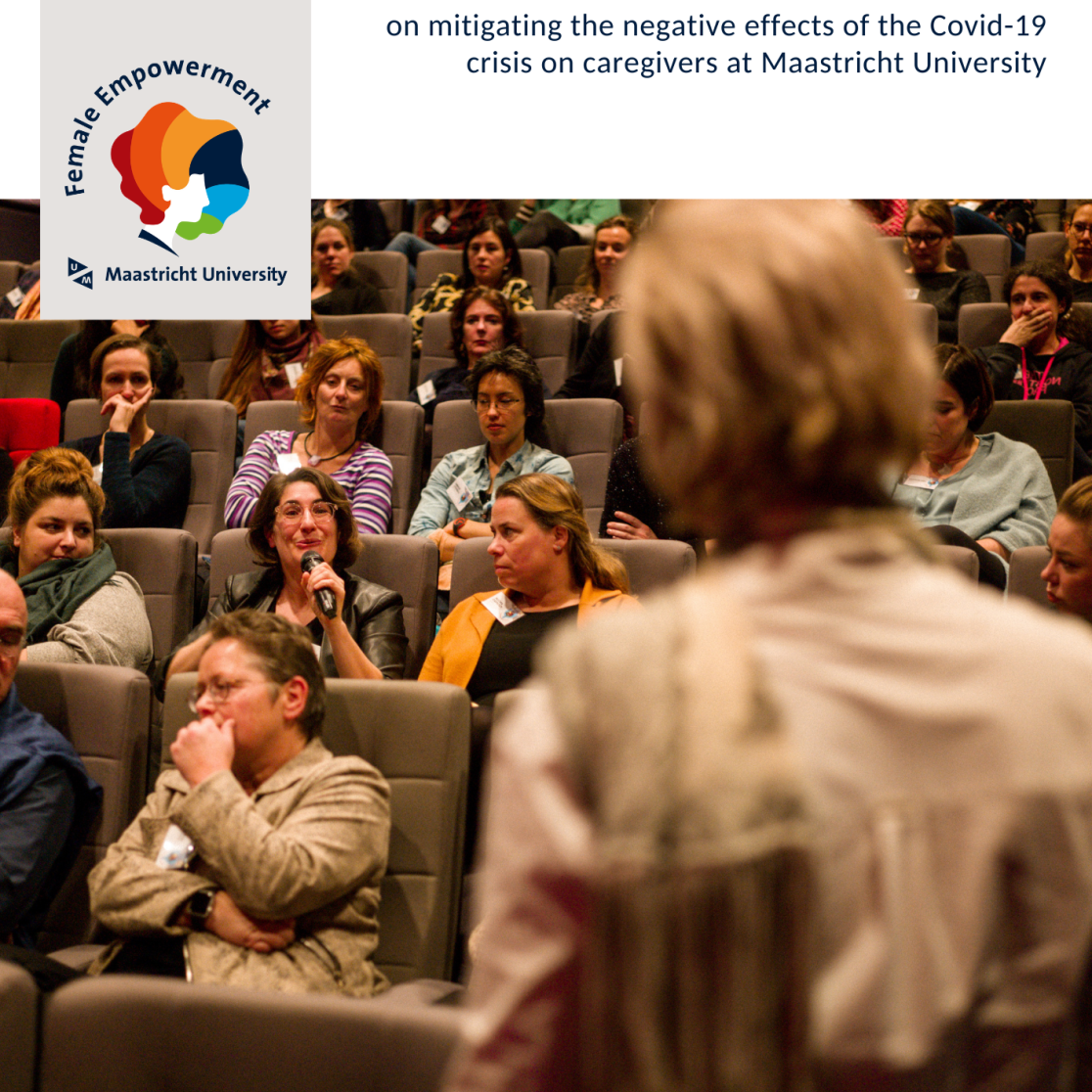Publications & Resources
Female Empowerment Maastricht University (FEM) is committed to improving inclusion and diversity at Maastricht University. More specifically, we aim at counteracting the long-existing systemic biases against women (both academic as well as administrative staff).
FEM Year Report
The FEM network was established in 2018 through a Diversity and Inclusivity grant, awarded by the UM Diversity and Inclusivity Advisory Council. After a successful pilot year, FEM has since become an essential element of UM’s Diversity and Inclusivity Office, supporting the University's objectives to minimise gender disparities and promote a diverse, fair, and equitable work environment for all.
FEM annually publishes a report that provides an overview of the activities and accomplishments from that year. The report also lays out some of FEM's plans for the future. We are very proud to publish this year's report containing all our activities and events of the last year. From our lunches, webinars, guest lectures, and trainings to our publications: it was a very busy but fruitful year!
We would like to thank the university and the faculties for their continued support, as well as all participants who joined and contributed actively to our events.
We aspire to make the coming year another year full of new opportunities for FEM to flourish and expand, allowing us to continue our devotion towards a gender-equal UM environment.
UM Citation Guide
FEM has been working hard on a brand-new publication aimed at opening the discussion around citation practices: Our very own FEM Citation Guide!
Through this guide, discover citation practices for students and teachers, and access different sources highlighting women and/or POC (People of Color) who are often overshadowed in the reference lists of our academic research projects.
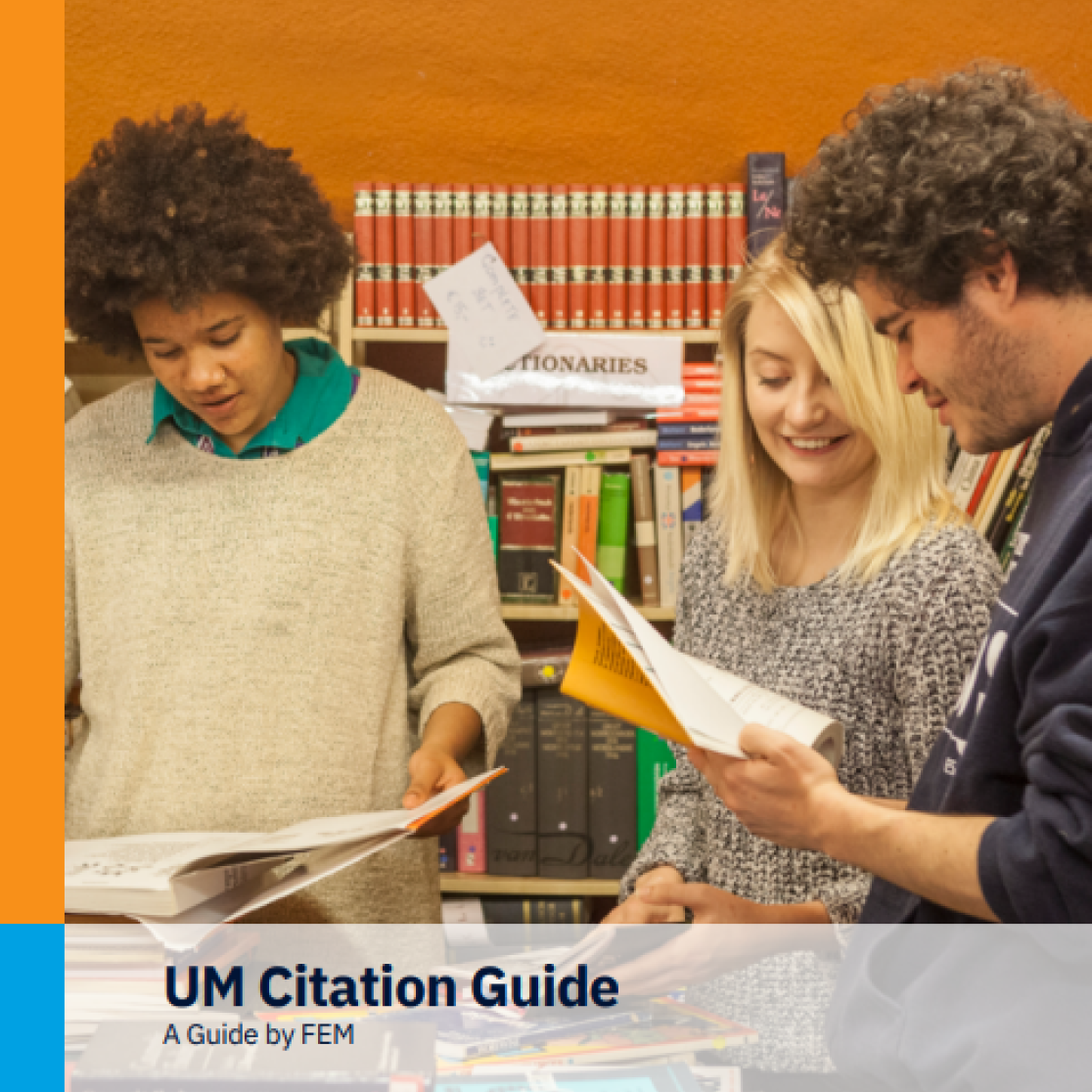
Download the Citation Guide
Gender Dimensions and R&R - Position Paper
In this new position paper, FEM tackles the topic of Recognition & Rewards (thereafter R&R) within UM. It highlights that with well-thought-through implementation, R&R has the potential to lead to more fairness, diversity, and better academic work culture. As such, FEM is committed to contributing to the discussion and helping shape the policy and the debate.
The paper focuses solely on the aspects that have a gendered dimension. The aspect of gender plays an important role in career advancement and promotion, and it is embedded deep within academia. Through this discussion, we would like to consider whether and in so how far the existing R&R vision addresses (and improves) that aspect of academic culture.
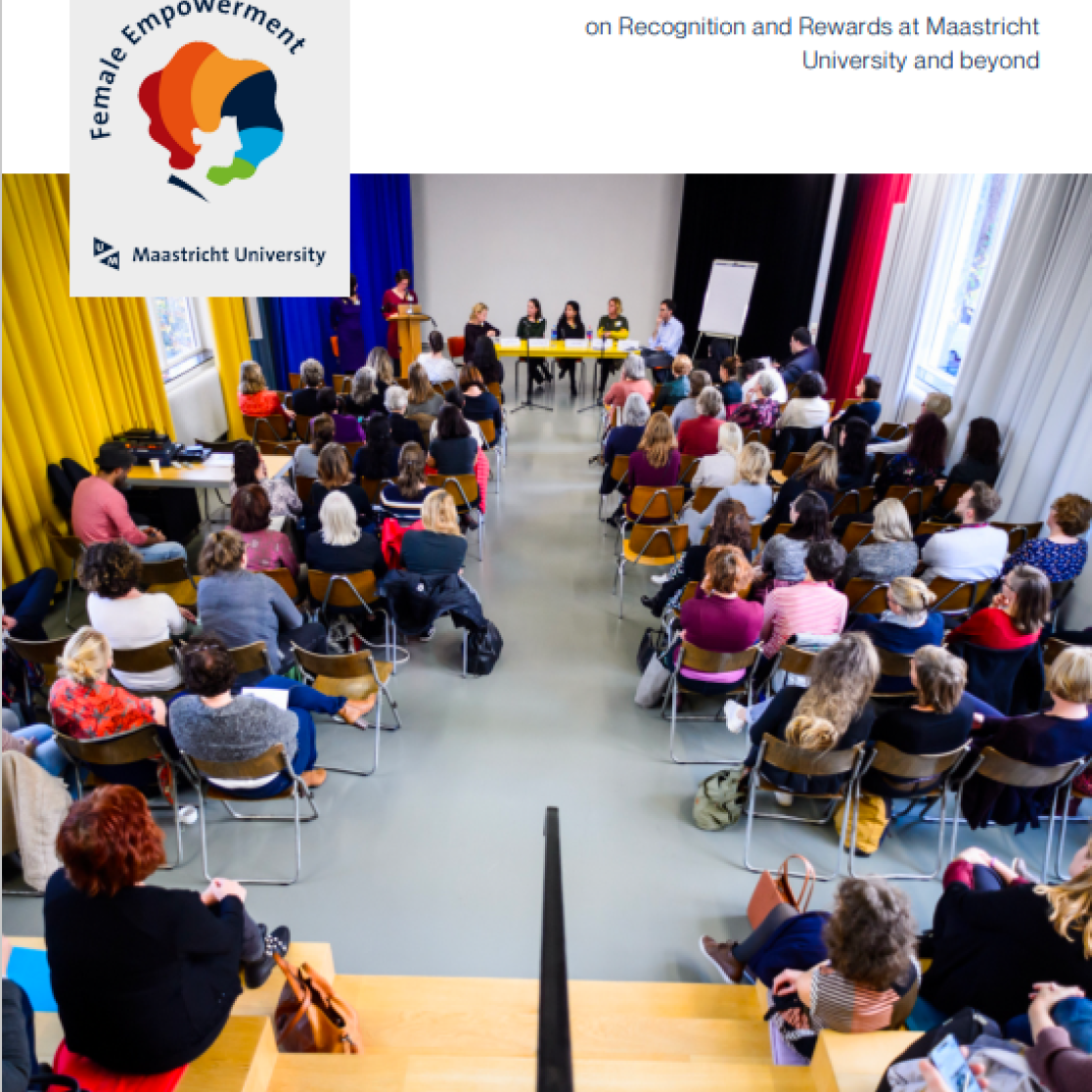
Download this position paper
FEM Statement Border Workers - Fall 2021
In this open statement, the executive board of FEM wishes to draw the attention of both the task force Future of Working @UM and the Executive Board to the special needs of border workers when drafting their post-pandemic vision. The statement covers two specific sets of problems that have been overlooked: the guideline of working two days at home considered problematic for border workers, and the proof needed and requested from the countries of residence. Finally, we hope that the university will take action in order to find a solution that does not create disparities among employees.
Overview Grants, Awards and Fellowships for Women in Academia
Women remain underrepresented in academia. Despite numerous efforts to counter gender disparities, female scientists are less likely to get tenure, obtain less payment and research amenities, and are facing unequal allocation of research grants compared with male scientists (Van Der Lee & Ellemers, 2021). Yet, there are many EU and national grants, awards, and fellowships that try to tackle this disparity by offering schemes solely to women in academia.
Through this new information leaflet, FEM aims to inform UM employees of such opportunities. We wish to tackle the gender inequality in awarded research grants, and the unequal distribution of prizes which are critical for shaping scientific career trajectories. Created in collaboration with several funding advisors at UM, the guide offers an overview of a variety of funding schemes available to women, starting with all-study fields to STEM- or other discipline-specific fields. We hope that this leaflet can serve as a map to guide UM employees through the maze of potential grants, highlighting lesser-known - but still valuable - options for shaping and advancing your career.
One thing left to say is good luck with all future grant and award applications!
Feel free to distribute this leaflet in your network, and if you find errors or have new suggestions, please contact us on fem@maastrichtuniversity.nl.
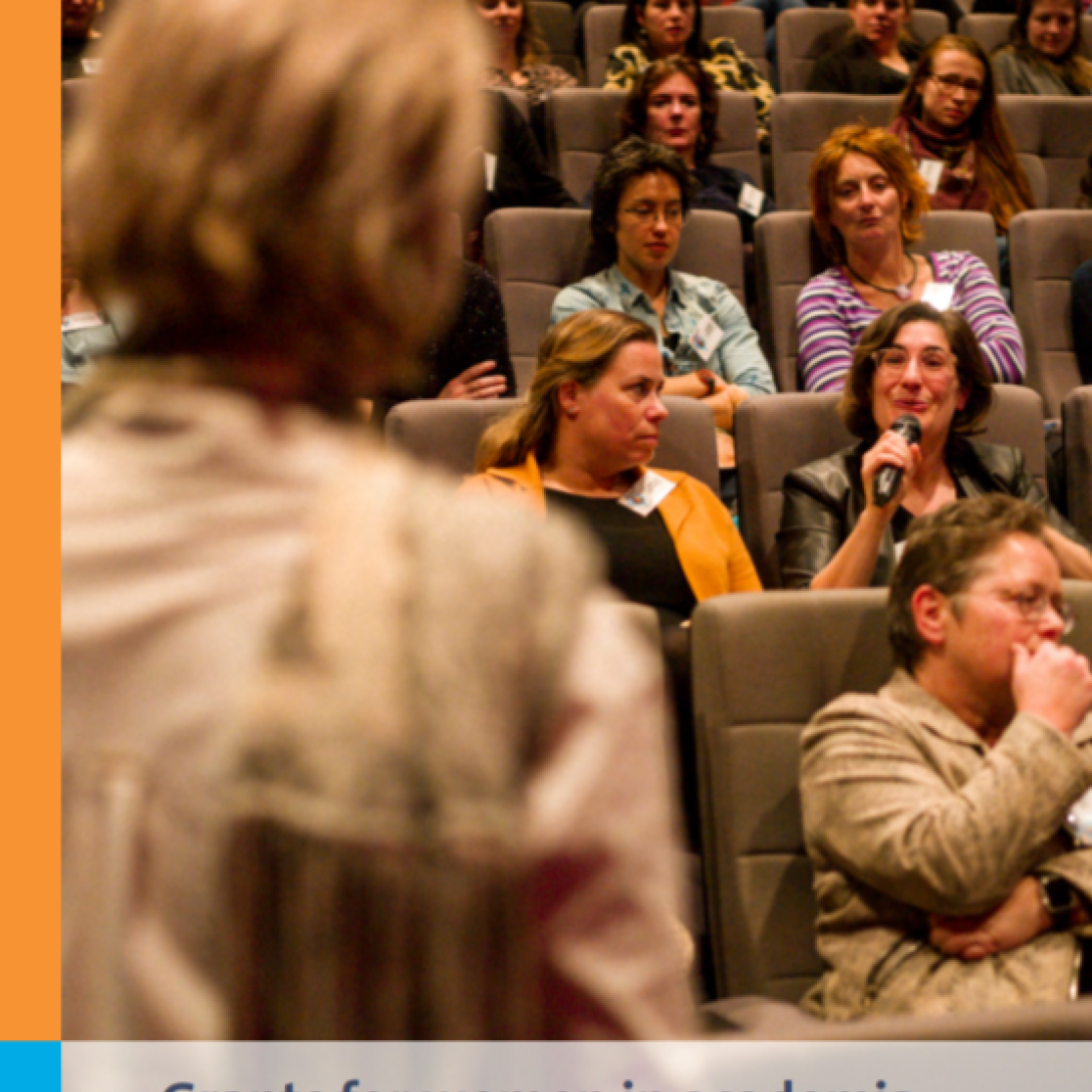
Overview Grants, Awards and Fellowships for Women in Academia
Mitigating the negative effects of the Covid-19 crisis on caregivers at UM
In this position paper, we would like to raise awareness and propose measures to tackle the negative effects of the COVID-19 crisis on UM employees. We fully acknowledge that this pandemic has negative, potentially severe, consequences for all UM community members irrespective of their family circumstances (e.g., single or partnered, with or without children, with or without other care commitments, academic or administrative staff, men or women). The lack of social contact, the disturbance of normal activities at UM, the fast introduction of e-learning and e-work more generally, and to put simply, the impact of such a globally disheartening event on life and future has taken enormous energy and time.
The main goal of this position paper is to propose specific policy measures to be taken at UM to tackle the effects of the Covid-19 pandemic, based on the extensive literature available on this topic, to help all UM employees with caring responsibilities (men or women, academic or administrative staff). Whereas our recommendations concern employees with care responsibilities, we emphasize that amongst this group, women researchers have been particularly disadvantaged. Women researchers with small children should receive special attention.
